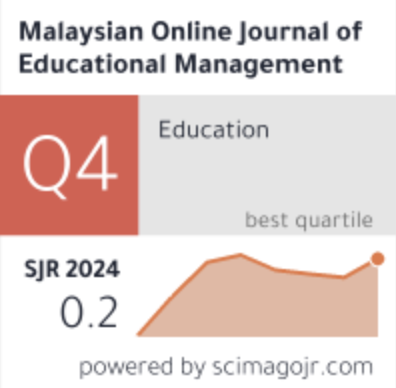TEACHERS’ ORGANIZATIONAL COMMITMENT IN INTERNATIONAL SCHOOLS: DOES DISTRIBUTED LEADERSHIP MAKE A DIFFERENCE?
Abstract
The distribution of leadership practices encourages teachers to be trustful and loyal to the organization, and therefore, ensures their commitment to the school. However, past studies on international schools in Malaysia have focused only on the concept of a ‘single’ leadership on the school principal alone. Hence, this study investigated the effects of distributed leadership on teachers’ organizational commitment and specifically, which aspects of distributed leadership influence teachers’ organizational commitment in international schools. The study employed a cross-sectional quantitative survey method. Data were gathered from a sample of 242 teachers selected randomly from ten international schools in Kuala Lumpur and analysed using Partial Least Squares Structural Equation Modeling (PLS-SEM) approach. Findings indicate significant and positive direct relationship between distributed leadership and teachers’ organizational commitment. Teachers’ participation in decision-making and cooperation in the leadership team had moderate effect sizes while quality and distribution of leadership function and supervision quality and distribution had small effect sizes on teachers’ organizational commitment. This study provides insights on the effects of distributed leadership in getting teachers to be more committed in international schools.









